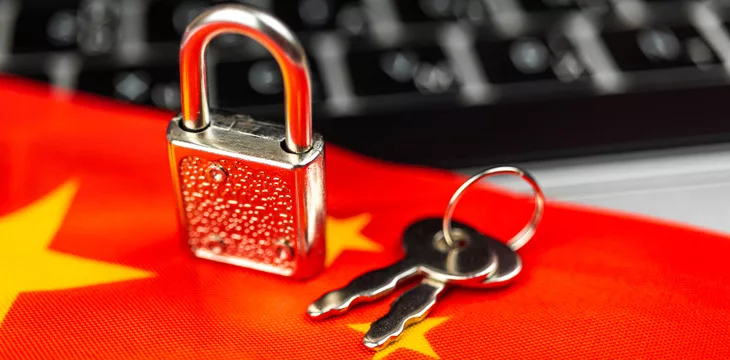|
Getting your Trinity Audio player ready...
|
China’s Blockchain-based Service Network (BSN) and the Ministry of Public Security have announced the start of experiments around a real-name verification system using blockchain technology.
The platform, named Real-Name Decentralized Identifier (RealDID) system, is expected to provide China’s 1.4 billion citizens with DID addresses, eliminating the need to use personal details to sign up on online platforms.
Using a public key infrastructure (PKI), the new digital ID service stores cryptographic keys on-chain after a real-name verification process. According to reports, the system authenticates users’ legal name, facial recognition, and government ID before allowing users to create an infinite number of public-private key pairs to register on online platforms.
A closer look at the RealDID system indicates that Chinese authorities can access users’ personal details, but enterprises will be restricted from accessing private information. Per the report, RealDID eliminates the need for users to input phone numbers or social media accounts during sign-up processes, giving greater control to users.
BSN notes that many privacy breaches stem from a lack of stiff controls over the sharing of personal information, fueling cybercrime across mainland China.
“In the digital era, a vast amount of personal privacy data, including identity information, location information, and communication information, is stored in various applications on the internet,” said BSN. “Establishing a robust mechanism for protecting personal privacy data is a fundamental requirement and an inevitable trend for the next step of internet development.”
Despite the perks associated with the new digital ID offering, critics have poked holes into the government’s ability to access users’ personal information. In defense of the project, He Yifan, CEO of Red Date, said that verifying personal data is, by default, a primary function of government across several jurisdictions.
“Whether you are in the US, Europe or anywhere else … you need a government-issued ID with a photo to board a plane,” He said.
Mainstream rollout will be a complex process
BSN notes that while the RealDID service will cater to China’s over 1.4 billion residents, the company says a full-scale rollout will be an uphill climb.
Over the next 12 months, BSN set a modest target to issue 5 million RealDIDs to citizens. The success of the experiments could trigger greater government support for the ambitious project, translating to more significant adoption metrics.
There is optimism among industry stakeholders that the service may provide a blueprint for future government regulation involving the use of personal data. China has embraced blockchain technology since its blanket ban on digital currencies in 2021, eyeing metaverse and non-fungible tokens (NFTs) use cases.
Watch: Blockchain tech will make gov’t more efficient and accessible

 07-18-2025
07-18-2025 





